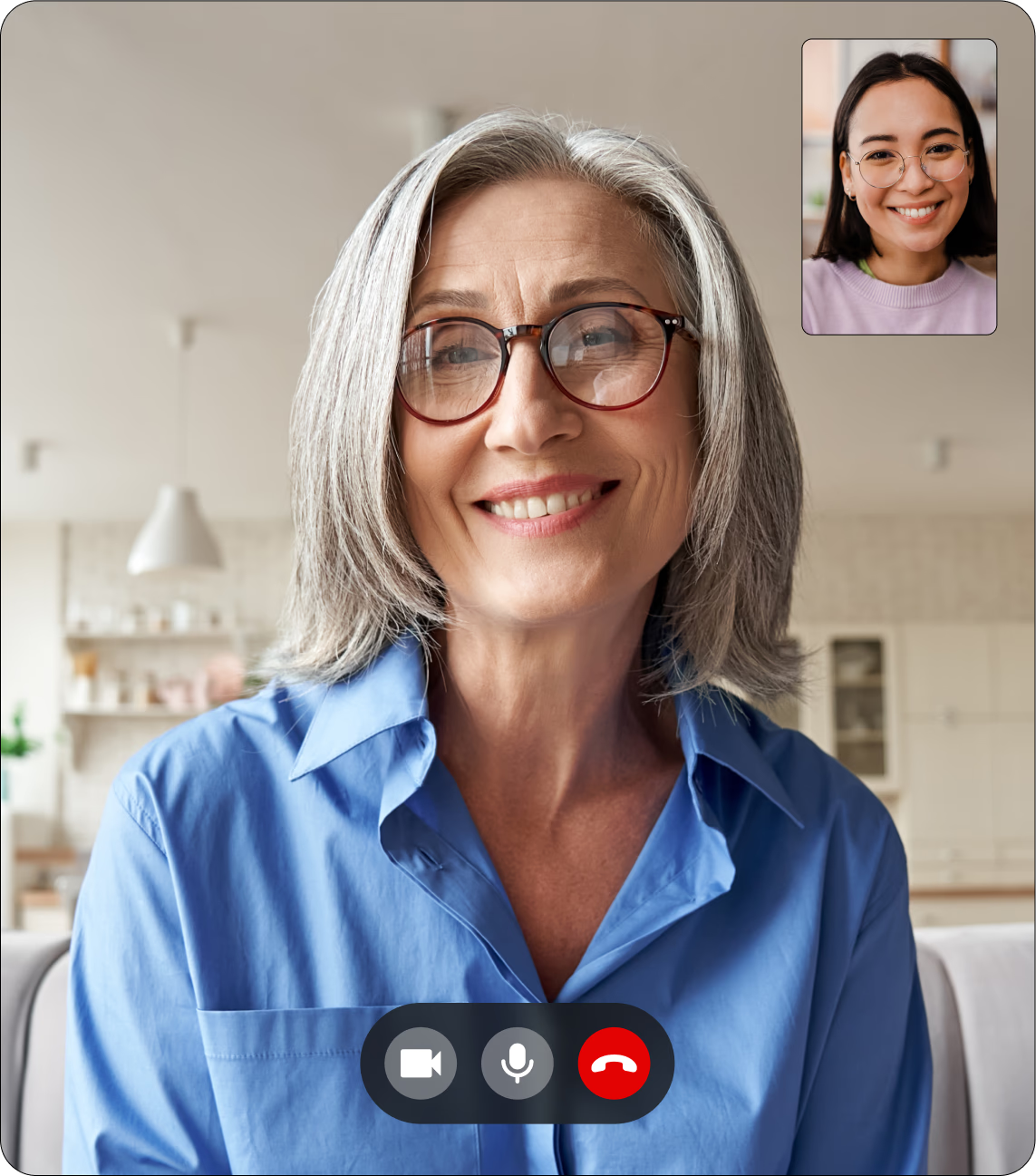

Top counseling CPT codes
Explore a wide range of counseling CPT codes with Healthie's comprehensive list. CPT codes for counseling can save your practice valuable time.
As a counselor in private practice, you understand that effective billing is essential for the success of your business. Central to the billing process are Counseling CPT codes, which serve as the standardized language used by healthcare providers to communicate the services they deliver to patients. These codes are crucial not only for accurate billing but also for ensuring that providers receive proper reimbursement for their work. Navigating CPT codes can be intimidating, particularly with the nuances involved in coding for different types of counseling sessions. From individual therapy to group and family counseling, each service has a specific CPT code that reflects the time spent and the nature of the therapy provided.
Understanding and utilizing the correct CPT codes is more than just a billing formality; it is a critical factor that directly impacts the financial health of a practice. Errors in coding can lead to denied claims, delayed payments, and even potential legal issues, making it imperative for behavioral health providers to be well-versed in the specific CPT codes relevant to their services. Moreover, as insurance companies and regulatory bodies continuously update coding requirements, staying informed about annual updates to CPT codes is key to avoiding costly mistakes.
Why use CPT codes for counseling?
CPT codes, or Current Procedural Terminology codes, are used by healthcare providers to describe the services they offer to patients and ensure they are appropriately compensated for their work. CPT codes standardize the billing process, making it easier for insurance companies to understand what services were provided and ensuring that providers receive timely payments.
Using counseling CPT codes correctly can significantly impact a practice’s revenue stream. Errors in coding can lead to denied claims, delayed payments, and increased administrative work. Therefore, understanding and using the correct CPT codes for counseling is crucial for the smooth operation of any behavioral health practice.
Finding the Right CPT Code for Counseling
Selecting the appropriate CPT code for counseling depends on certain factors:
Type of service provided
The type of counseling service being offered significantly influences the choice of CPT code. CPT codes for counseling can vary depending on whether the session is for individual therapy, group therapy, or family therapy. For instance, a session focused on one-on-one counseling will have a different CPT code compared to a session that involves multiple family members or a group of patients.
Duration of the session
The length of the counseling session is another critical factor in selecting the correct CPT code. CPT codes for counseling often specify the duration of the therapy session, which directly impacts the billing and reimbursement process. For example, two of the most commonly used CPT codes for counseling are 90834 and 90837. While both codes are used for psychotherapy sessions, they differ based on the session's length, with code CPT code 90834 designated for a 45-minute session and CPT code 90837 designated for a 60-minute session.
Credentials of the provider
The provider's credentials also play a significant role in determining which CPT code for counseling should be used. Licensed Professional Counselors (LPCs), psychologists, and social workers might have different eligible CPT codes based on their qualifications and the specific services they provide. Ensuring that the correct code is used according to the provider’s credentials helps avoid claim denials and ensures accurate billing.
{{behavioral-health-option-1}}
List of Counseling CPT Codes
Here is a list of commonly used counseling CPT codes:
- 90832: Psychotherapy, 30 minutes with patient. This code is used for brief individual therapy sessions lasting 16-37 minutes.
- 90834: Psychotherapy, 45 minutes with patient. Used for mid-length individual therapy sessions, typically lasting 38-52 minutes.
- 90837: Psychotherapy, 60 minutes with patient. This code applies to extended individual therapy sessions lasting 53 minutes or longer.
- 90839: Psychotherapy for crisis, 60 minutes. This is used for the first 60 minutes of crisis therapy, where the patient is experiencing an acute mental health crisis.
- 90840: Psychotherapy for crisis, each additional 30 minutes. Used when crisis counseling extends beyond the initial 60 minutes covered by 90839.
- 90845: Psychoanalysis. This code is for services involving psychoanalytic therapy.
- 90846: Family psychotherapy without the patient present. Used for family therapy sessions where the client is not present.
- 90847: Family psychotherapy with the patient present. Applies to family therapy sessions involving both the patient and family members.
- 90849: Multiple-family group psychotherapy. This code is used for group therapy involving multiple families addressing shared concerns.
- 90853: Group psychotherapy (other than of a multiple-family group). Applies to group therapy sessions for patients dealing with similar mental health issues.
- 90875: Psychophysiological therapy (with biofeedback), 30 minutes. Used when biofeedback is included in counseling to address behavioral health conditions.
- 90876: Psychophysiological therapy (with biofeedback), 45 minutes. This code covers longer biofeedback sessions used in therapy.
- 96156: Health behavior assessment or reassessment. For initial or follow-up evaluations of health-related behaviors affecting treatment.
- 96158: Health behavior intervention, individual, 30 minutes. Used for individual interventions to address behavioral factors affecting health, lasting 30 minutes.
- 96159: Health behavior intervention, individual, each additional 15 minutes. An add-on code is used when the intervention exceeds the initial 30 minutes.
- 96164: Health behavior intervention, group, 30 minutes. This applies to group interventions aimed at improving health behaviors.
- 96165: Health behavior intervention, group, each additional 15 minutes. An add-on code for group interventions that go beyond the initial 30 minutes.
- 96167: Health behavior intervention, family with the patient present, 30 minutes. Used for family interventions that include the patient and focus on health-related behaviors affecting treatment.
- 96168: Health behavior intervention, family with the patient present, each additional 15 minutes. An add-on code for extended family interventions beyond the initial 30 minutes.
- 96170: Health behavior intervention, family without the patient present, 30 minutes. Applies to family interventions focused on health behaviors, conducted without the patient present.
- 96171: Health behavior intervention, family without the patient present, each additional 15 minutes. An add-on code used when these family interventions extend beyond the initial 30 minutes.
- 90791: Psychiatric diagnostic evaluation (without medical services). This code is used for an initial assessment of a patient’s mental health without any medical services provided.
- 90792: Psychiatric diagnostic evaluation with medical services. Similar to 90791, but includes medical services such as prescription or management of medication.
- 99354: Prolonged service in the office or other outpatient setting, first hour. Used when a counseling session extends beyond the typical time frame, adding an extra hour.
- 99355: Prolonged service in the office or other outpatient setting, each additional 30 minutes. An add-on code for extended counseling sessions beyond the first additional hour.
Staying up-to-date with Healthie's resources
As a counselor, billing for CPT codes can feel like a time-consuming task, however, platforms like Healthie offer resources and tools to simplify the process. Healthie’s billing platform is designed to streamline the coding and billing process, reducing the likelihood of errors and ensuring that providers are paid promptly. By using a billing platform like Healthie, behavioral health providers can focus more on patient care and less on administrative tasks.






